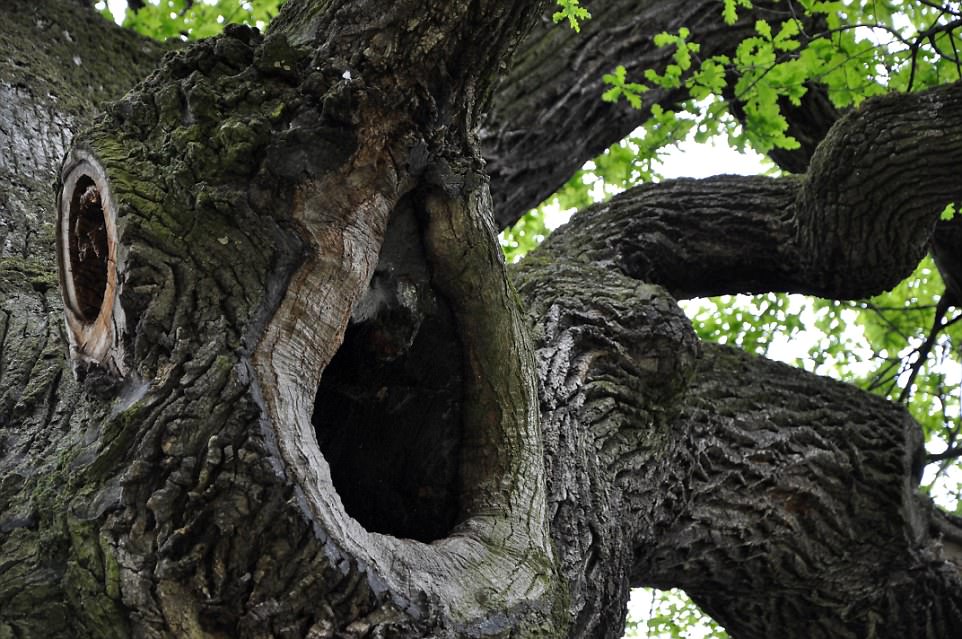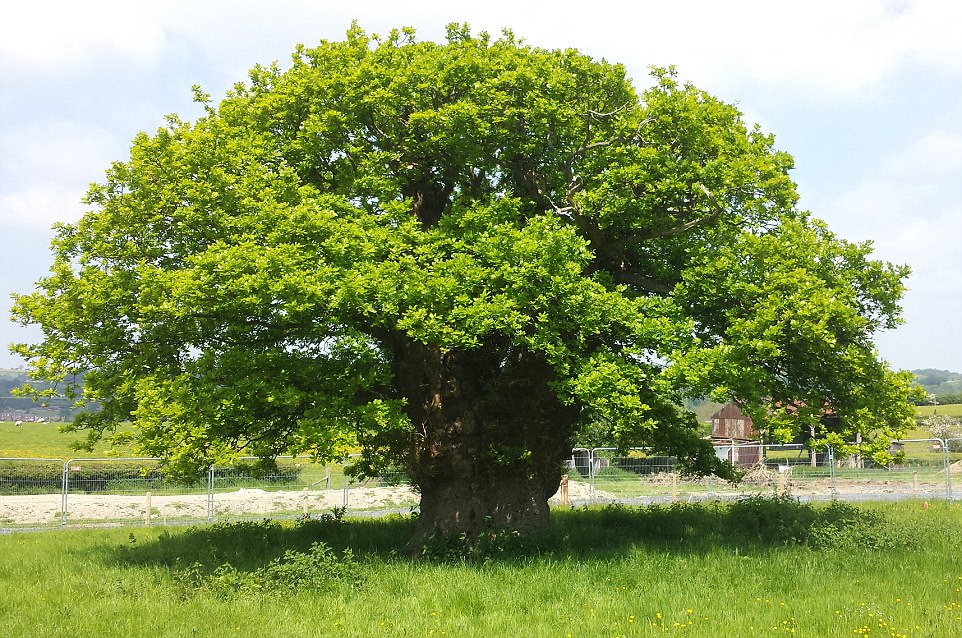And the winner is…
Hey, wait a minute. What’s the contest? you ask.
As well you might. It’s a competition I’ve never heard of before: European Tree of the Year.
And the winner this year is a glorious oak with a history:
A Polish tree that two Jewish brothers used as a shelter for hiding from the Nazis during World War Two has been voted European Tree of the Year 2017.
Oak Jé³zef, in the village of WiÅ›niowa, south-eastern Poland, was also printed on Polish 100 zÅ‚oty bills. Today it is admired by many visitors and is captured in many photos and paintings.
The Brimmon Oak, in Newtown, in Wales, came runner-up in the competition.
Here’s the first, in photographs of the actual tree and the artwork on the zloty bill:
And here’s the Welsh runner-up”
The bathing suit competition was a little rough.
I love these trees. Old trees (we have plenty of them in New England) can often be very very beautiful, gnarled and twisted and full of personality and a sense of their great antiquity.




Thanks for something to enjoy and is far removed from politics.
Ents might have a bathing suit competition. A talent competition would last a loooooooooong time.
New England was timbered a long time ago, and second growth if allowed to grow, would be very large, or at least old, by now.
Many people though, especially those growing up in suburban areas, seldom if ever encounter really old and large trees until they are in their 20s, and moving about and exploring around on their own.
There might be those 100 year old oaks in city parks, or 150 year old yard trees on Grandma’s farm, but encountering 300 year old river bottom Midwest hardwoods, say, a 140 ft Tulip Tree, or California Sequoias, is a different experience entirely.
I’ve been fascinated for some time by the looks of the oddball trees/large flora of Chile, the Canaries, Madagascar, New Caledonia or Mt. Stanley. Not enough to make a real study of them, but enough to enjoy a repeat look at the images on occasion.
As a small boy, “tree” meant silver maple, elm, poplar, willow, “pine” or apple and pear to me. It was a fascination for me for a long while when I eventually discovered there was much more.
It’s kind of a remarkable thing when you converse with someone you know and you like well enough, and as you are talking you come to realize that the trees that surround them, are just a mass of undifferentiated “stuff” called trees, that might all be a mass of the same thing more or less. Pines, are “pines”, spruces are “pines”, a tamarack/ larch is a “pine”, hemlocks are pines …”
And you wonder what is it like to live in such a mind, where the natural world appears so out-of-focus, and boring, and pointless, and drab.
No wonder they love the stuff they do.
DNW:
The forests are mostly second-growth, the land having been cleared for farming and then abandoned (I believe most of the abandonment happened around Civil War times or thereabouts). But there are still some really old trees, older than that. For example—I’m talking about this sort of thing, or this. or this.